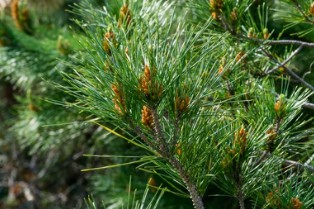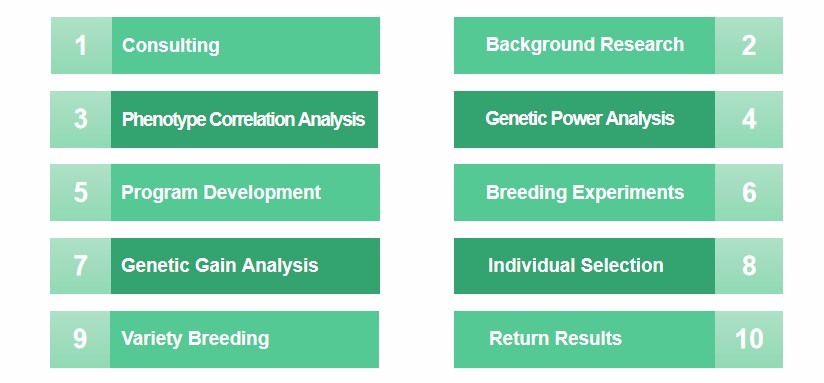
Radiata Pine (Pinups radiate D. Don, P. radiata) is a tree species of the pine family, Pinus sylvestris. It is native to California in the United States and was introduced to New Zealand for planting in the 19th century. Because of its adaptability, low soil requirements, and drought resistance, P. radiata can be grown on plains, hills, and slopes. It soon became a significant economic tree species in New Zealand.
P. radiata is fast-growing, high yielding, and versatile. P. radiata wood is a high-quality softwood with medium density, uniform structure, average shrinkage efficiency, and high stability. It can be used not only to produce high-quality logs and logs for pulp but also planted as protective forests, shade forests, and combined agricultural and livestock forests. In addition to the main products, its by-products can also be fully utilized, and thus its yield rate is greatly improved.
Lifeasible has many years of experience in plant breeding, excellent plant scientists, large capacity plant breeding sites, and our desire to provide fast and high-quality P. radiata breeding service to our customers worldwide through our efforts.
P. radiata is an essential economic forest, and its productivity has been greatly improved through traditional breeding and silviculture. Breeding based on genetic engineering has also received increasing attention. Long breeding cycles, large and complex genomes, variable correlations between juveniles and maturity, emerging pests and diseases, climate, and market changes pose challenges to breeding methods. To better develop P. radiata, Lifeasible offers a P. radiata breeding service to its clients. This breeding service allows us to create short- and long-term breeding programs to help our customers determine the genetic gain of P. radiata as precisely as possible for ambiguous traits.
Our service strategy usually proposes an amount of genetic improvement or gain in traits after selection to provide genetic competence for the same traits in the following selected generation and to avoid damage to other traits. The long-term breeding strategy for P. radiata is essentially the "complex" population of maintenance. This "complex" consists of a genetic resource population, a seed population, and a seed (plant) production population.
Our service features the use of factor analysis models to model additive genotype-environment interactions. Developing effective plant breeding strategies first requires understanding the magnitude and structure of genotype-environment interactions, which can be obtained from multi-environmental experimental data using factor analysis models.
One of the methods used in our P. radiata breeding service is called the general fitness rotation selection method, in which the breeding population is reconstituted by measuring the offspring of phenotypic selection of heterozygous individuals with a broad genetic base, followed by family or individual selection. We have developed a systematic breeding system for P. radiata that includes mating methods, selection criteria, offspring determination, field design, and analysis and evaluation.

Lifeasible provides efficient and reliable Pinups radiate D. Don breeding service to customers worldwide. Our mission is to achieve the highest level of customer satisfaction, and we will ensure that every project receives the attention and support it needs. For questions, inquiries, or cooperation, please feel free to contact us.
Reference
Lifeasible has established a one-stop service platform for plants. In addition to obtaining customized solutions for plant genetic engineering, customers can also conduct follow-up analysis and research on plants through our analysis platform. The analytical services we provide include but are not limited to the following:
July 13, 2024